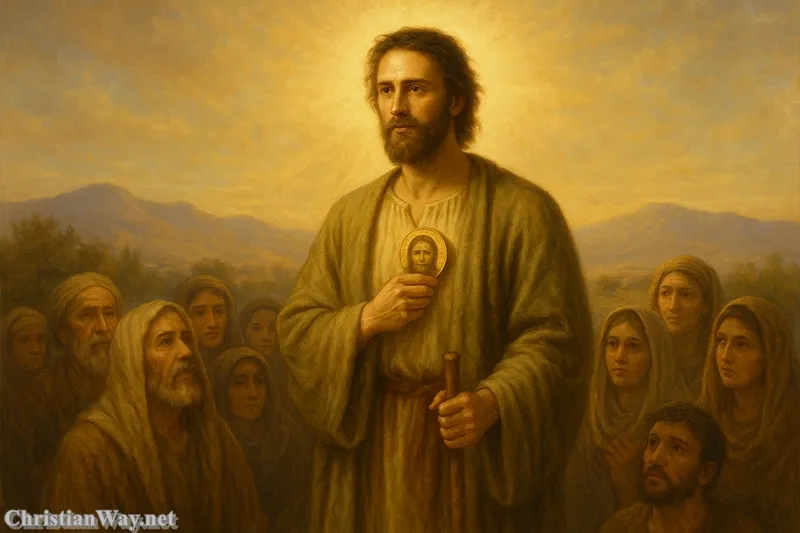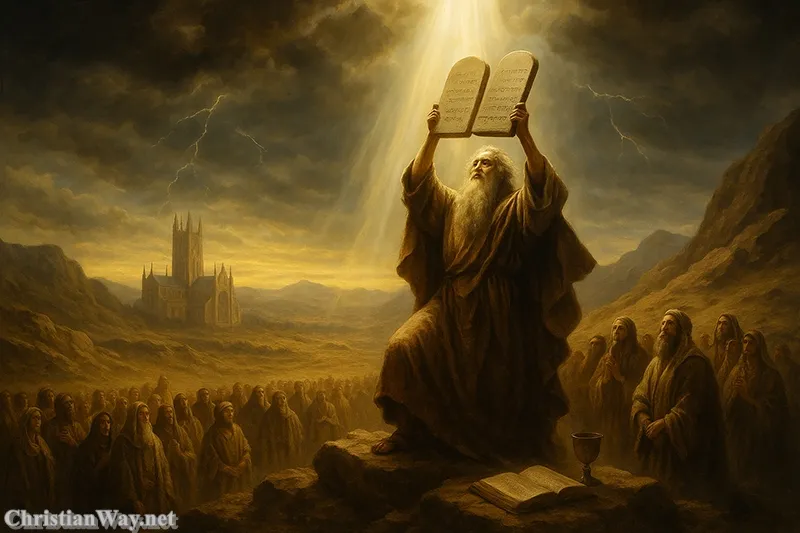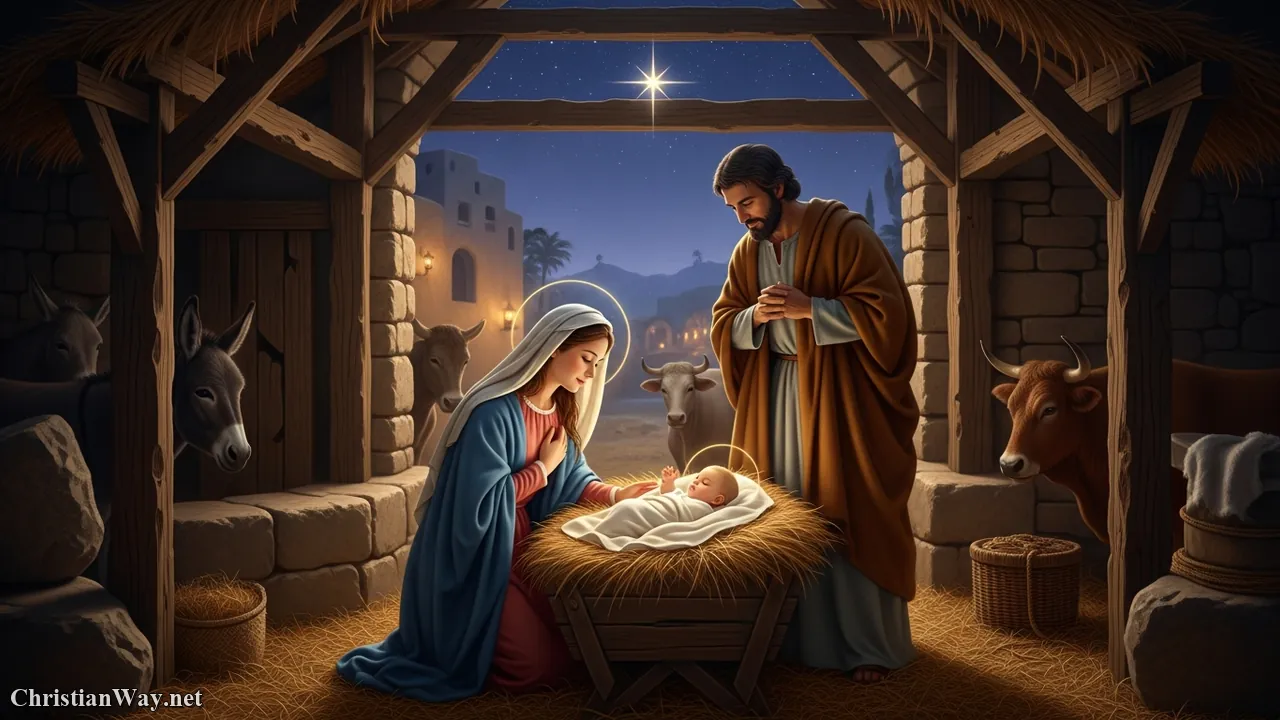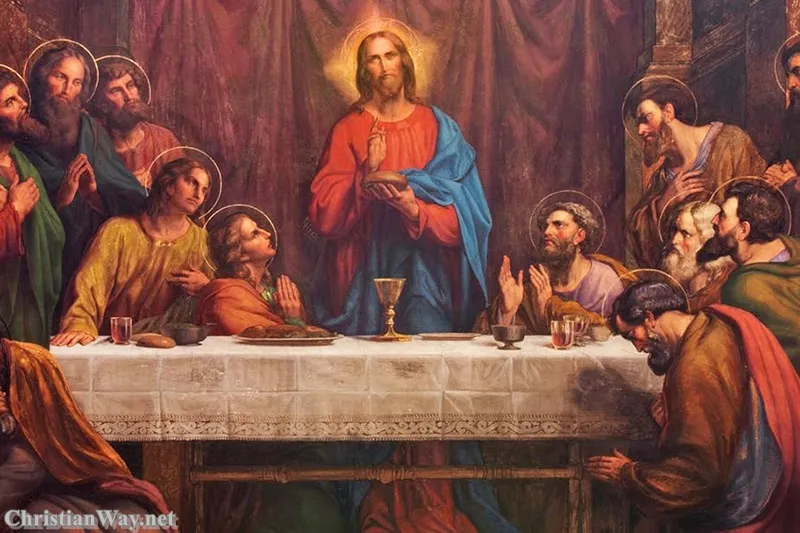Dear friends in Christ,
Every soul has a story of encounter — a moment when the light of God pierces through the ordinary and changes everything. In the story of Saint Matthew the Apostle, once known as Levi the Tax Collector, we find one of the most striking examples of transformation in all of Scripture. A man who once served the empire became a servant of the Kingdom; one who counted coins came to proclaim the Word of eternal life. Through Matthew, we are reminded that no life lies beyond the reach of God’s mercy and no past beyond the power of His call.
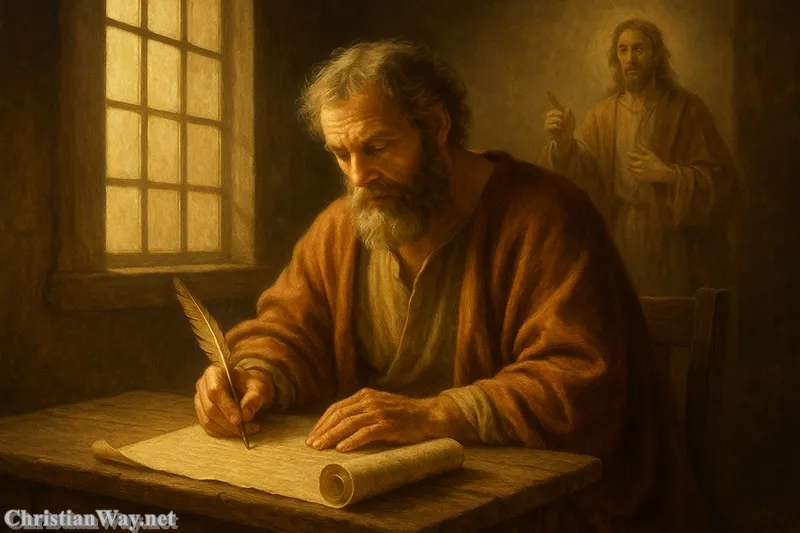
Saint Matthew’s journey from the tax booth to the Gospel is not merely a biography from long ago. It is a mirror for us today — an invitation to recognize the Lord’s call amid our own routines, our ambitions, and our sins. His story whispers a truth that every Christian must one day face: when Christ passes by and says, “Follow Me,” everything changes.
The Call of Matthew: Grace That Interrupts
The Gospel of Matthew recounts his own calling in simple, piercing words:
“As Jesus passed on from there, he saw a man called Matthew sitting at the tax booth, and he said to him, ‘Follow me.’ And he rose and followed him.”
— Matthew 9:9
That moment contains a universe of meaning. Matthew, a man immersed in worldly gain, was seen by Jesus — not with contempt but with compassion. Christ did not merely notice him; He saw him in the depths of his humanity. With a single glance and a few words, the Lord shattered the walls of greed, shame, and social exclusion that had enclosed Matthew’s life.
The Tax Collector’s Burden
In the first century, a tax collector like Matthew was among the most despised figures in Jewish society. Working for the Roman Empire, he was seen as a traitor to his people — one who profited by collecting taxes and often adding extra for personal gain. The word publican carried the stench of corruption and betrayal.
Yet Jesus did not avoid him. He did not demand repentance before acceptance. He simply invited him to follow. And in that merciful summons, Levi — the tax collector — became Matthew the Apostle, whose name means “Gift of God.”
A Radical Response
What did Matthew do? The Gospel tells us that he “rose and followed him.” That one line holds the whole mystery of discipleship. Matthew left behind not only his money but the entire structure of his identity and security. To leave a tax booth was to abandon a career, a social standing, and worldly wealth — yet he did so without hesitation. Grace had found him, and nothing else mattered.
A Feast of Mercy: The Table of the Sinner
Immediately after his conversion, Matthew opened his house and held a feast for Jesus. The Gospels tell us that “many tax collectors and sinners came and were reclining with Jesus and his disciples” (Matthew 9:10).
The Scandal of Grace
To the Pharisees, this was a scandal. Why would a rabbi eat with sinners? But Jesus answered them with words that reveal His mission:
“Those who are well have no need of a physician, but those who are sick. Go and learn what this means, ‘I desire mercy, and not sacrifice.’ For I came not to call the righteous, but sinners.”
— Matthew 9:12–13
This is the heart of Christ’s Gospel — mercy that seeks out the broken, love that sits at the table with the unworthy, and healing that begins in relationship. Matthew’s house became the first “church” in a sense — a place where sinners met the Savior and where grace began to spread.
The New Table of the Kingdom
In that meal, we see a foreshadowing of the Eucharist. Christ dines with sinners still — now not in the home of Matthew, but in the heart of the Church. Every Mass is a table where mercy triumphs over sin, and every believer is called to become what Matthew became: a host of divine grace.
From Levi to Matthew: The Transformation of a Name
Names in Scripture always carry spiritual meaning. Matthew’s Hebrew name, Levi, connects him to the priestly tribe of Israel — those who served at the altar. When Christ called him, his priestly heritage was fulfilled not through temple rituals but through evangelization. His new name, Matthew, meaning “Gift of Yahweh,” signified what his life had become: a gift given to God and to others.
The Gift of Conversion
Matthew’s conversion reminds us that repentance is not merely about turning away from sin but about turning toward love. When grace transforms the heart, it turns greed into generosity, self-interest into service, and shame into testimony. The same God who called Matthew continues to call each of us — not to perfection before following, but to transformation through following.
The Gospel According to Matthew: A Portrait of the King
Among the four Evangelists, St. Matthew holds a special place as the bridge between the Old and New Testaments. His Gospel was written primarily for Jewish Christians and shows how Jesus fulfills the Law and the Prophets.
The Structure of the Gospel
Matthew’s Gospel is carefully arranged around five great discourses — echoing the five books of Moses — and presents Jesus as the new and greater Moses, the divine lawgiver who brings the Sermon on the Mount as the charter of the Kingdom of Heaven.
- The Sermon on the Mount (Ch. 5–7): The new law of the Beatitudes, where righteousness flows from the heart.
- The Missionary Discourse (Ch. 10): Instructions to the Apostles as they go forth to preach.
- The Parables of the Kingdom (Ch. 13): Mysteries of God’s reign revealed in simple stories.
- The Community Discourse (Ch. 18): Teachings on forgiveness and unity in the Church.
- The Eschatological Discourse (Ch. 24–25): The vision of the end times and Christ’s return in glory.
The Theme of Fulfillment
Over and over, Matthew writes, “This was to fulfill what was spoken by the prophet.” He weaves together ancient promises and their realization in Christ, showing that the long-awaited Messiah has come — not merely as a teacher or prophet, but as Emmanuel, “God with us.”
The Heart of the Gospel
The Gospel according to St. Matthew is sometimes called the catechist’s Gospel because of its clarity and order. But beneath that structure lies a burning heart — the heart of a man who once knew emptiness and now knows love. Every word he wrote was shaped by gratitude for the mercy that found him.
Matthew the Apostle: Witness to the Resurrection
After the Resurrection, tradition tells us that Apostle Matthew preached first among his own people in Judea, then went forth to the nations, possibly to Ethiopia or Persia, bringing the light of the Gospel to distant lands. Like the other Apostles, he obeyed Christ’s command:
“Go therefore and make disciples of all nations, baptizing them in the name of the Father and of the Son and of the Holy Spirit.”
— Matthew 28:19
He who once collected taxes now gathered souls. He who once counted silver now counted the saved.
Missionary to the East
Though historical details are scarce, ancient traditions — both Western and Eastern — hold that Matthew faced persecution and martyrdom for the sake of the Gospel. Some accounts describe him being killed while celebrating Mass, offering his life at the very altar where heaven meets earth. Whether by word or by blood, he bore faithful witness to the Christ who had first looked upon him with love.
The Symbol of the Winged Man
In Christian art, each Evangelist is represented by a symbol derived from the vision of Ezekiel and the Book of Revelation. Saint Matthew is depicted as a winged man or angel, representing the humanity of Christ and the Incarnation.
Why a Man?
Because Matthew begins his Gospel with the genealogy of Jesus — tracing His human lineage from Abraham to Joseph — his emblem highlights the truth that the Word became flesh. Matthew reminds the Church that salvation is not an abstract idea but a divine Person who entered human history. The winged man stands as a symbol of the union between heaven and earth, God and humanity — the mystery at the heart of the Gospel.
Lessons from Saint Matthew’s Life
1. God’s Call Reaches the Unexpected
Matthew’s story proves that no one is too far for God to reach. The Lord does not wait for us to become worthy; He makes us worthy by His grace. Like Matthew, we are called not because of what we are, but because of what we may become through Christ.
2. Conversion Means Leaving Something Behind
To follow Christ means to rise and leave the tax booth — whatever form it takes in our lives. It may be pride, greed, bitterness, or fear. Conversion always requires a letting go, so that God can fill the emptied heart with His presence.
3. Mercy Must Become a Banquet
Matthew did not hide his new faith. He invited others to the table. True conversion always overflows into mission. The one who has been forgiven much becomes a herald of mercy to others.
4. The Word of God Transforms the World
By writing the Gospel, Matthew became not only a disciple but a teacher of all nations. His life reminds us that our story too can become a Gospel — a living witness to God’s transforming love.
The Church’s Veneration of Saint Matthew
The feast of St. Matthew the Apostle is celebrated on September 21 in the Western Church and on November 16 in the Eastern tradition. His relics are said to rest in the Cathedral of Salerno, Italy, a place of pilgrimage for centuries.
In liturgy, the Church prays:
“O God, who with untold mercy were pleased to choose as an Apostle Saint Matthew, the tax collector, grant that sustained by his example and intercession, we may always hold fast to You and serve You with sincere heart.”
A Saint for Those Seeking Purpose
Saint Matthew stands as a patron for all who feel unworthy of God’s call — for professionals, accountants, and anyone whose heart is caught between the world’s profit and the soul’s longing for peace. His life tells us that holiness begins not with perfection, but with surrender.
Reflect and Pray
Saint Matthew the Apostle teaches us that grace does not ask where we have been but shows us where we can go. The same Jesus who passed by his tax booth now passes by the corners of our own lives, inviting us to rise, follow, and never look back.
May we, like Matthew, leave behind the small treasures of this world to gain the boundless treasure of heaven. May our homes, like his, become places where Christ is welcomed and where mercy is shared.
Let us pray:
Lord Jesus Christ,
You looked with mercy upon Matthew,
and called him from the tax table to Your table of love.
Look upon us, too, with that same gaze of grace.
Free us from what binds us,
and give us hearts that rise at Your word,
to follow You wherever You lead.
May Saint Matthew intercede for us,
that we may proclaim Your Gospel
not only with our words, but with our lives.
Amen.
— Fr. John Matthew, for Christian Way
